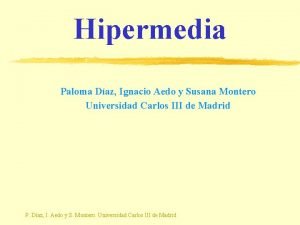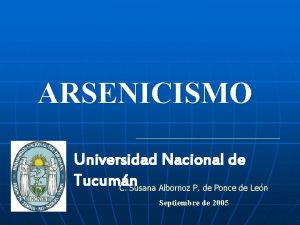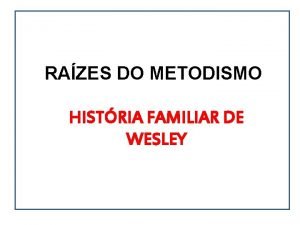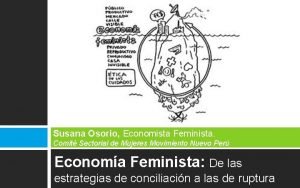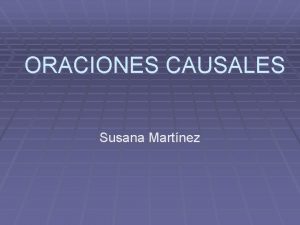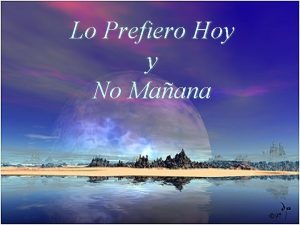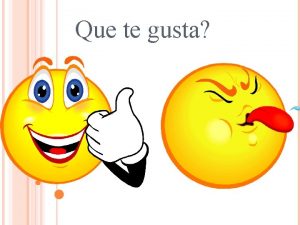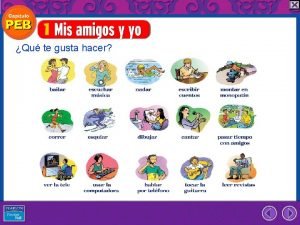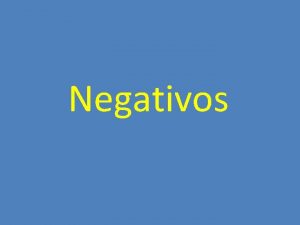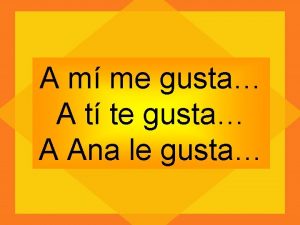Susana Me gusta No me gusta Prefiero Ir







- Slides: 7

Susana Me gusta No me gusta Prefiero Ir al cine Enrique María Luisa

Susana Ir al cine Enrique María Luisa ir al cine, jugar con el ordenador practicar la vela Me gusta hablar por teléfono No me gusta jugar con el ordenador jugar al fútbol ir al polideportivo Prefiero ir al polideportivo, mandar mensajes practicar la vela ir a la piscina


1. Busca estas palabras en español. a. results b. questionnaire c. young people d. boys e. girls f. domestic chores g. approximately h. pastimes i. popular j. films k. TV series l. sports 2. Draw a chart to show: a. How much money Spanish young people have to spend. b. What they watch on TV. 3. ¿Verdad o mentira? a. Boys have more free time than girls in Spain. b. Girls help more at home. c. Girls have more money to spend on free -time activities than boys. d. Watching TV is the most popular activity. e. Boys like computers, girls like reading. f. Sports programmes are more popular than films.

5 4 1 2 10 6 3 Escribe cómo se llama cada uno: 1. Elvira 4. Paco 2. Gonzalo 3. Ernestina 7 5. Laura 8 9 11 6. Tomás 9. Emilio 7. Teresa 8. Claudia 10. Isidro 11. Diana

Me gusta No me gusta Prefiero Odio Me chifla Me encanta jugar con videojuegos escuchar música ver la tele nadar jugar al fútbol hacer ciclismo con mi padre con mis amigos con mi hermano en la piscina en el parque en casa pero y porque me gusta no me gusta prefiero odio me chifla me encanta ser activo/a estar fuera estar con mis amigos ver películas jugar con el wii ir de compras

KS 3 Spanish Core Language Pronouns yo – I tú – you él/ella – he/she Usted – you (polite, sing. ) nosotros – we vosotros – you (fam. pl. ) ellos/ellas – they Ustedes – you (polite, pl. ) Time words ahora – now antes – before después – after hoy – today ayer – yesterday mañana – tomorrow otra vez - again siempre – always a menudo – often a veces – sometimes nunca – never la semana pasada – last week la semana que viene – next week Opinions Pienso que – I think that Creo que – I believe that Me parece que – it seems that. . ser – to be tener – to have estar – to be tengo I have soy I am estoy I am tienes you have eres you are estás you are tiene he/she/you have es he/she is/you are está he/she is/you are tenemos we have somos we are estamos we are tenéis you have (fam. pl. ) sois you are (fam. pl. ) está you are (fam. pl. ) tienen they/you have son they/you are están they/you are (pol. sing) (pol. pl. ) Referring to things una cosa – a thing esto – this eso – that algo (más) – something (else) otro – (an)other mucho – a lot (un) poco – (a) little muy – very todo – all/everything (pol. sing) (pol. pl. ) Referring to places aquí – here allí - there Making links y – and o – or también – also pero – but porque – because con – with sin - without Sentence building puedo/puede I can/he, she can quiero/quiere I want to/he, she wants to… tengo que/tiene que I have to/he has to… voy a/va a + verb I’m going to/he is going to… (no) me (le) gusta I (don’t) like to/he doesn’t like to me (le) encanta I love to/he loves to… me (le) gustaría I/he/she would like to… (pol. sing) (pol. pl. ) Asking questions ¿Por qué? – why? ¿Qué? – what? ¿Cuándo? – when? ¿Dónde? – where? ¿Quién? – who? ¿Cuánto(s)? – how much/many? ¿Cómo? – how? Saying what you did fui – I went hice – I did ví – I saw jugué – I played comí – I ate bebí – I drank
